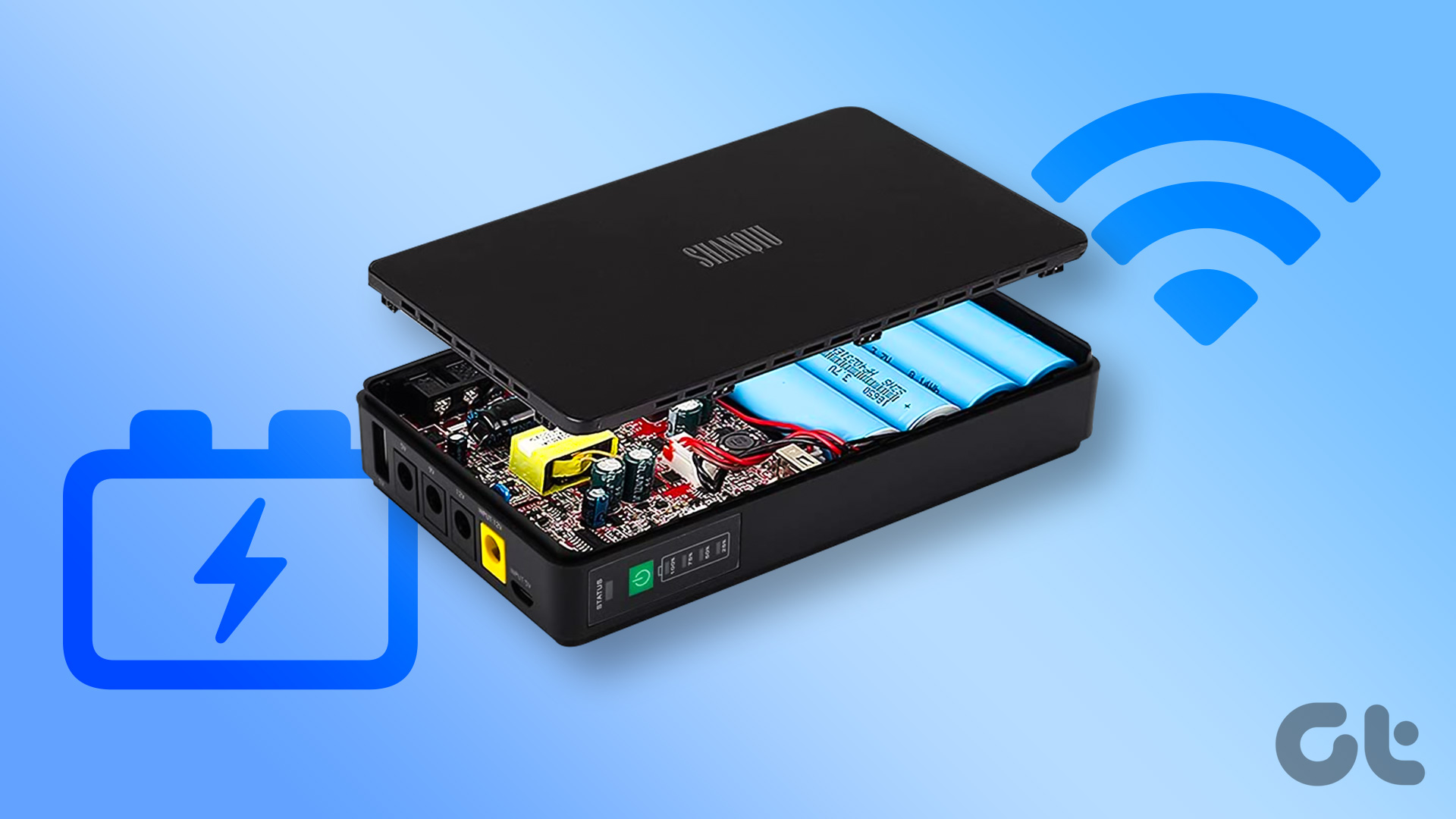In this article, we’ll take a look at some of the best budget Wi-Fi routers for gaming. Whether you’re a casual gamer or a hardcore enthusiast, these routers offer the speed, reliability, and performance you need to get the most out of your gaming experience. At the same time, these routers won’t break the bank either. So, let’s dive in and find the perfect router for your gaming needs! But first, you might want to check out the following:
Understand the difference between a Router and a Modem Learn how to choose the right Wi-Fi router for you Continue to stay online with these power banks for your Wi-Fi router
1. Tongyu AX1800
Wi-Fi Standard: Wi-Fi 6 | Speed: 1.8Gbps LAN Ports: 3 | Antennas: 4 Bands: Dual Band (2.4GHz + 5GHz)
The router has a combined speed of up to 1800Mbps and the device nets 574Mbps on the 2.4GHz band and close to 1201Mbps on the 5GHz band. Unsurprisingly, the router is more than adept at tackling HD content, online gaming, and other bandwidth-intensive activities. Unlike the rest of the products on this list, the Tongyu router lacks any gaming-specific features. That said, it more than makes up for its lackluster feature set by being among the most affordable Wi-Fi 6 routers on the market. As such, the device should be able to provide faster speeds and better coverage compared to older Wi-Fi standards.
2. ASUS ROG Strix AX3000
Wi-Fi Standard: Wi-Fi 6 | Speed: 3Gbps LAN Ports: 4 | Antennas: 4 Bands: Dual Band (2.4GHz + 5GHz)
When it comes to gaming features, the ASUS ROG Strix AX3000 has a couple of tricks up its sleeve. You get a dedicated Gaming LAN port for wired connections. As for wireless connectivity, there’s a Mobile Game Mode that minimizes latency for mobile gaming with a single tap. And, if you’re concerned about network security, then you’ll be glad to know that ASUS offers a lifetime free Network Protection service. At its core, it’s basically a firewall service built into your router directly, but it works very well. As for your gaming flair, the router also benefits from Aura RGB LEDs up front.
3. ASUS ROG Rapture GT-AC2900
Wi-Fi Standard: Wi-Fi 5 | Speed: 2.9Gbps LAN Ports: 4 | Antennas: 3 Bands: Dual Band (2.4GHz + 5GHz)
The ASUS ROG Rapture GT-AC2900 is among the rare budget Wi-Fi routers for gaming that are certified for NVIDIA’s GeForce Now service. Essentially, if you were to use NVIDIA’s cloud gaming service, you would get the best possible speeds on the router, thanks to its QoS profiles. Apart from that, the router comes with a triple-level game accelerator. To wit, the device promises lower latency with better routing and traffic control, thereby delivering an enhanced gaming experience. Additionally, for console gamers, configuring Open NAT on the router is a seamless process. You also get two USB ports here, in case you wish to attach a drive or two to your network. And of course, you get support for ASUS’ AURA RGB lighting, on both the front strip and the ROG logo itself.
4. TP-Link AX5400
Wi-Fi Standard: Wi-Fi 6 | Speed: 5.4Gbps LAN Ports: 4 | Antennas: 6 Bands: Dual Band (2.4GHz + 5GHz)
The TP-Link Tether app makes it easy to set up and manage your network, including setting up a separate guest network for your gaming friends. There’s also support for MU-MIMO technology, which enables multiple devices to connect to the network without any slowdowns. It also includes OFDMA technology, which reduces latency and improves the overall performance of your network. When it comes to Wi-Fi gaming, you’ll want to stay connected to a router via the 5GHz band. And, as per PCMag’s review, the TP-Link AX5400 absolutely shines in that area. However, the performance of the router on the 2.4GHz band isn’t that great. As such, if you’re concerned about the range, you should probably invest in a Wi-Fi repeater or extender.
5. Tenda AXE5700
Wi-Fi Standard: Wi-Fi 6E | Speed: 5.7Gbps LAN Ports: 3 | Antennas: 5 Bands: Tri Band (2.4GHz + 5GHz + 6GHz)
The major highlight of the router is that it supports the Wi-Fi 6E standard, which comes with a 160MHz bandwidth. This allows your wireless gaming device to connect to the router without any signal interference, and game smoothly and swiftly. Since most of your devices will be connected to the 2.4GHz and 5GHz bands, the 6GHz band can be deployed for your gaming needs. Of course, that also means that your gaming device needs to support Wi-Fi 6E standards as well. You also get advanced security features like WPA3 encryption, which provides enhanced protection for your network and connected devices. The only downside here is the fact that Tenda isn’t as renowned as opposed to its competitors. But for its price, it’s hard to match the router’s value-for-money proposition.
6. ASUS TUF-AX5400
Wi-Fi Standard: Wi-Fi 6 | Speed: 5.4Gbps LAN Ports: 4 | Antennas: 6 Bands: Dual Band (2.4GHz + 5GHz)
Similar to the company’s other gaming routers, the TUF Gaming AX5400 features a dedicated LAN port which takes priority over the other Ethernet connectors to ensure the maximum speeds possible. There’s also support for link aggregation, should you require that. For wireless connectivity, you get plenty of QoS profiles inside the ASUS Router app. This enables you to prioritize activities like gaming or video streaming to deliver optimal performance for your gaming sessions. While it lacks the flashy RGB lights as seen on the ROG Strix lineup, you still get a TUF logo with customizable RGB lighting. Also, per TechRadar, the router scores exceptionally well in the performance department too.
Improve Your Online Gameplay with These Budget Wi-Fi Gaming Routers
Can a normal router work for gaming? Yes. However, a gaming router often comes with additional features and capabilities that improve the gaming performance and your end-user experience. The routers listed in this article are all excellent options for gamers on a budget, providing reliable connections, fast speeds, and low latency at an affordable price. Whether you’re a casual gamer or a competitive player, these routers can help you enjoy a smooth and lag-free gaming experience without spending a fortune. The above article may contain affiliate links which help support Guiding Tech. However, it does not affect our editorial integrity. The content remains unbiased and authentic.
















